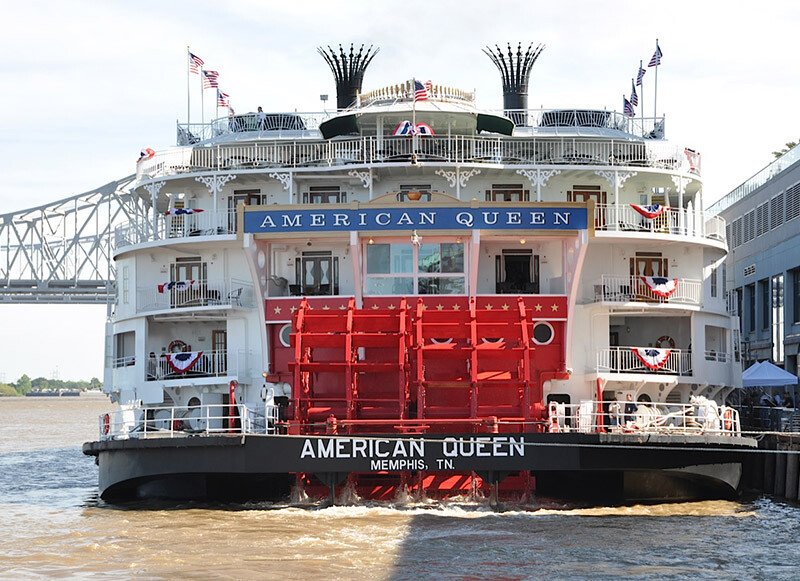Passenger vessel operators say recovery from the pandemic’s devastation is several years away. Their outlook for this once thriving market is colored by uncertainty over the Delta variant, supply chain problems for everything from napkins to engine parts and the hard time they’re having finding employees — licensed and otherwise.
“None of us can afford to go backward,” Colleen Stephens, president, Stan Stephens Glacier and Wildlife Cruises, Valdez, Alaska, and president of the Passenger Vessel Association (PVA), said Wednesday during a WorkBoat webinar on the post-Covid world.
Governments at every level shut down the industry with few exceptions such as ferries. New regulations were expensive, passenger loads were slashed, and people were laid off.
Some of the changes made for Covid-19 are continuing like fewer trips per day or per week to conserve resources. American Queen Steamboat Co. (AQSC), for example, requires all passengers and crew to be vaccinated and tests vendors before letting them onboard. They also have two dinner seatings and two shows instead of one.
“Our costs have gone up substantially just to comply with regulations and make sure crew and guests are safe,” said John Waggoner, founder and chairman of the New Albany, Ind.-based line.
He and others are concerned about the Delta variant. “We cannot financially go through another shutdown,” he said.
“We need to be able to operate through September,” said Stephens, who did not open last year.
Unlike many other operators, Fire Island Ferries, Bay Shore, N.Y., didn’t lay anyone off but took 20% salary cuts. The area was a safe haven for people escaping the virus in cities.
Their no-mask, no-ride policy “got to be very confrontational,” said Dave Anderson, director of operations/general manager, for the Long Island ferry line. Crewmembers said that wasn’t what they signed up for, so Fire Island Ferries hired security strictly for mask enforcement — at a cost of $160,000. “Our ridership and employees are not about to go backwards,” he said.
Staffing has been a little harder this year because college students available last year are heading back to school, and others who might have to mask up again running a boat — “they’re just not going to do it,” Anderson said.
Hiring is a major issue. Even companies that purposefully promoted from within have to rebuild their workforce, and they appreciate PVA’s work with maritime academies to attract people to industry careers.
Some operators are spending as much to find employees as to attract customers, Stephens said.
The halt to all overnight cruising has been a double-edged sword, Waggoner said. They were able to attract some people let go by the large, foreign-flag cruise lines, but filling lower paid positions is more difficult. People are afraid the jobs might be temporary, and they would have trouble getting back on unemployment or they’re making more on government relief.
“We pay a referral bonus, we pay a retention bonus,” Waggoner said, and they fly people to jobs. “We continue to pull out all the stops.”
On the plus side, with overseas travel uncertain, U.S.-flag overnight operators have a chance to lure passengers who might have otherwise cruised European rivers.
Stephens said the industry might not know for a few years how many operators will never reopen. Some may be selling parts of their fleets, and others closing for a year while assessing the market.
Some consolidation was in the works before the pandemic, “and that is still on the horizon,” she said.
“We are actively looking at acquisitions,” said Waggoner, who with partner Terry MacRae and private equity investor, Crestview Partners, own Hornblower Holdings. Pre-covid, for example, Hornblower bought Entertainment Cruises with 53 dining and sightseeing vessels mainly in the Northeast and Chicago as well as Canadian and United Kingdom operators. Companies under the Hornblower umbrella also include AQSC, Victory Cruise Lines, New York City’s NYC ferry and HMS Global Maritime.



.JPG.small.400x400.jpg)

